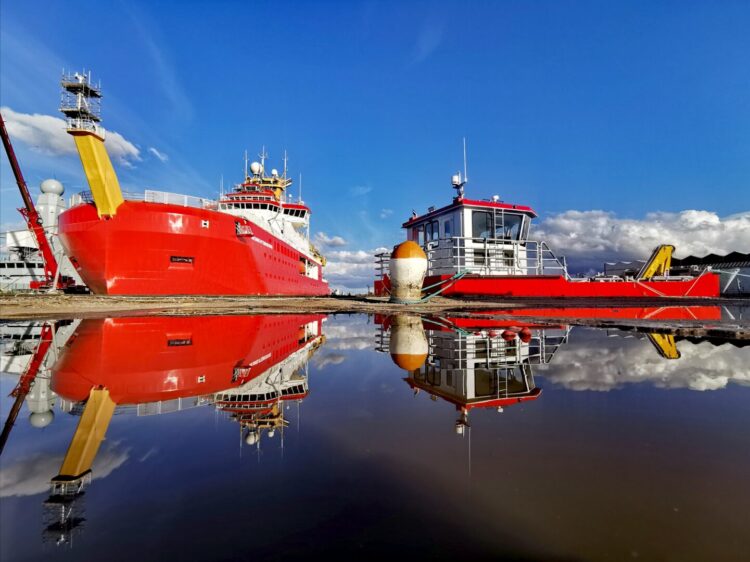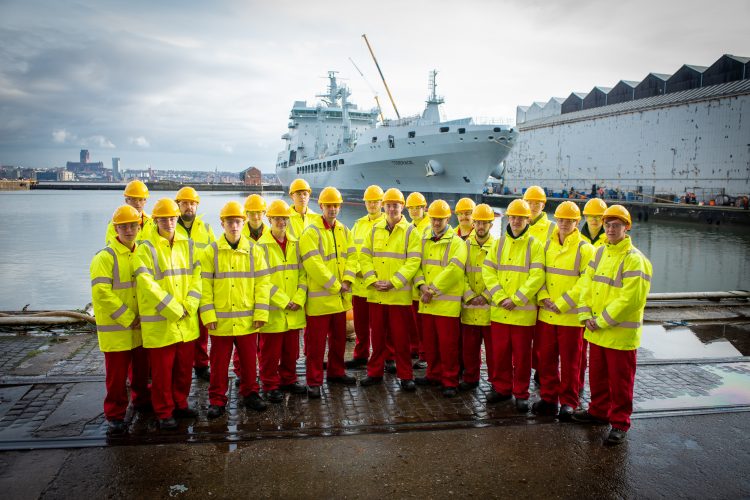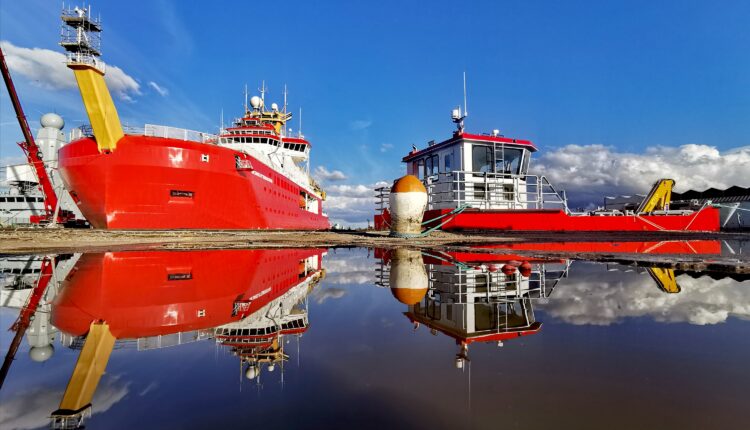Cammell Laird secures £16.2m bailout from Peel
Shipyard Cammell Laird secured a further bailout of £16.2m from parent company Peel Group due to losses sustained on the £200m RRS Sir David Attenborough. Tony McDonough reports

Birkenhead shipyard Cammell Laird secured a bailout from its parent company Peel Group for the second year in a row and now owes its owner £27.4m.
According to the firm’s accounts, just published on Companies House, Peel Ports ploughed £16.2m into Cammell Laird in the 12 months to March 31, 2021. This followed an £8.6m bailout in the previous year.
In the accounts, Cammell Laird executive chief executive David McGinley says 2020 and 2021 have been “some of the most challenging times in the group’s history”. Its troubles stem from losses incurred on the building of the £200m polar research vessel RRS Sir David Attenborough.
Workers at the shipyard started building the vessel in October 2016 for the Natural Environment Research Council (NERC). It was, said Mr McGinley, “one of the most complex ever undertaken in the shipyard”.
Delays due to COVID-19 as well as “further engineering and design challenges” meant the formal handover of the vessel to NERC did not take place until November 27, 2020. Work on the ship continued at the yard until it departed the Mersey on July 1, 2021.
It has successfully returned from its first visit to the Antarctic and, added Mr McGinley in the report, “customer feedback on performance has been positive”.
However, he added: “A number of design, production and supply chain issues have arisen on the project which have resulted in a significant increase in the actual and projected costs.
“The group has, therefore, recorded a further loss on the contract in the accounts for the year ended March 31, 2021, which has contributed to the loss in the current year. It is not expected to incur any further costs in relation to the build of the vessel above those already provided for.”
In last year’s accounts Cammell Laird said it had “failed to give sufficient attention to the transfer of risk between the customer and the supply chain” during the contract.
For the 12-month period, Cammell Laird saw a marginal rise in revenues to £126.7 from £125.7m in the previous year. However, due to continuing fall-out from the RRS Sir David Attenborough project, pre-tax losses were £7.5m. This was lower than the £8.5m loss recorded for 2020 and significantly lower than the £43m loss in 2019.
As a result of the bailouts from Peel Ports, Cammell Laird now owes its parent company more than £27m.
In March 2021 Cammell Laird initiated a restructuring process admitting it was “inefficient and uncompetitive”. In May 2021 this led to 146 redundancies from a workforce numbering more than 600. All the redundancies were voluntary and cost the company more than £4m.
However, the firm has continued to take on apprentices across multiple areas of the business. In September 2021 36 apprentices were hired with a further 44 planned for September 2022.
Cammell Laird’s order book remains strong. In 2018 it started work on a 10-year contract to maintain the vessels of the Royal Fleet Auxiliary (RFA). The RFA is a fleet of civilian-crewed ships that services Royal Navy vessels. That contract is worth £619m.
During the year RFA Tidesurge entered the shipyard for the first time for a major refit following its build in Korea. And work has been undertaken in readiness to support Carrier Strike Group 21, in particular ensuring the readiness of Fort Victoria and Tidespring.
Cammell Laird is also carrying out work for BAE Systems on the Dreadnought Submarine programme. That is expected to continue for the next 10 years.
Following a six-month delay, the first of six Type 45 destroyers arrived in May 2020 and departed in June 2022 after a refit. This is part of the Ministry of Defence’s Power Improvement Programme.

In the commercial market work included dry-docking for CalMac Ferries, Isle of Man Dream Packet Group, Seatruck Ferries, Merseytravel, Irish Ferries and Svitzer Marine. Irish Sea Pioneer, a rig servicing UK offshore energy platforms, continues to dock on an annual basis.
In October 2021, LBN reported that, following a review of costs and overheads carried out in January 2021, a “significant misappropriation of funds” was discovered and that an investigation into the matter was ongoing.
This involved a senior individual “acting in isolation” who had left the company and related to monies paid to him, and other parties, “for his personal benefit” over a number of years. In the latest accounts, Cammell Laird said: “There has been no further information come to light and an external investigation is ongoing.”
Cammell Laird also confirmed Peel had acquired the remaining shares held by former chief executive John Syvret. Mr Syvret took a temporary leave of absence from the business on November 8, 2019, for a period of six months.
He subsequently resigned as both chief executive and chairman on April 9, 2020, with immediate effect and without compensation. He had been chief executive since 2012. His 5,066 shares were bought by Peel Group on December 1, 2020, after which he resigned from the board of Cammell Laird.

